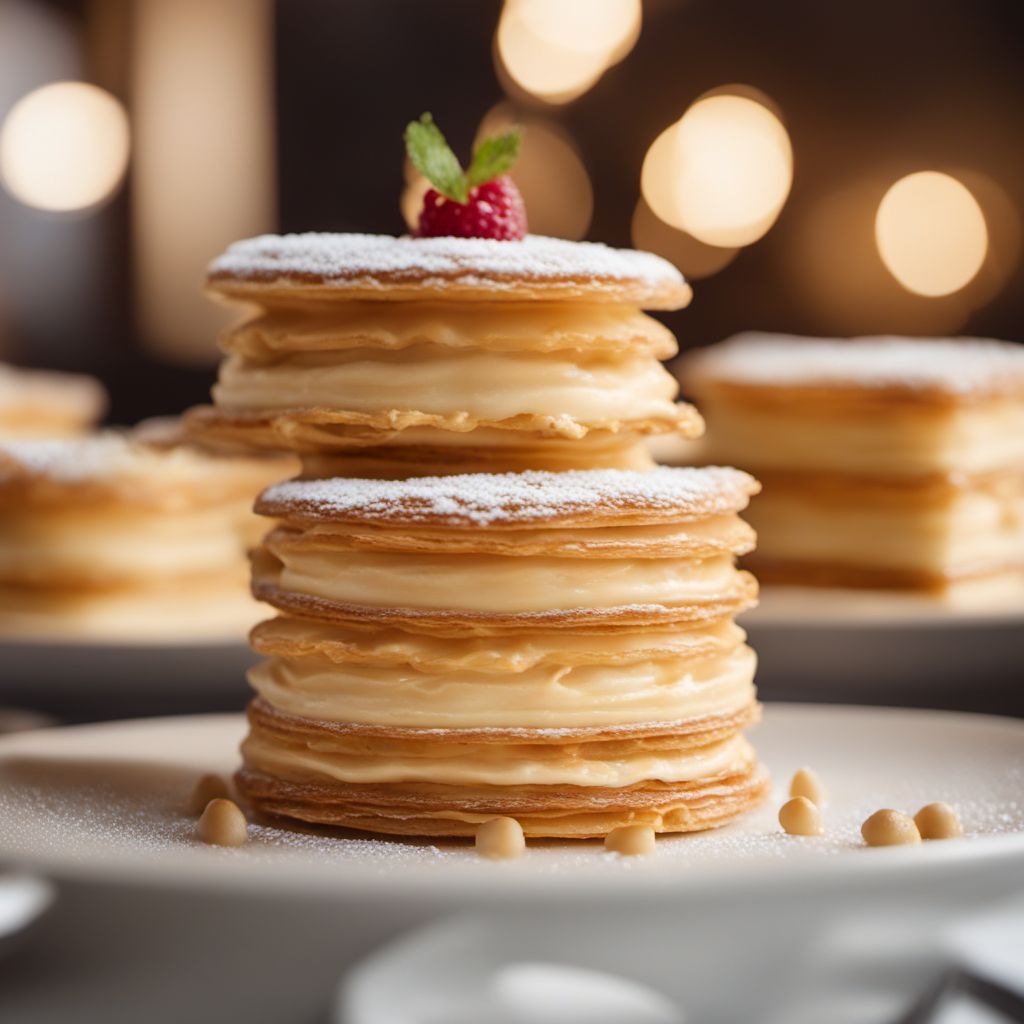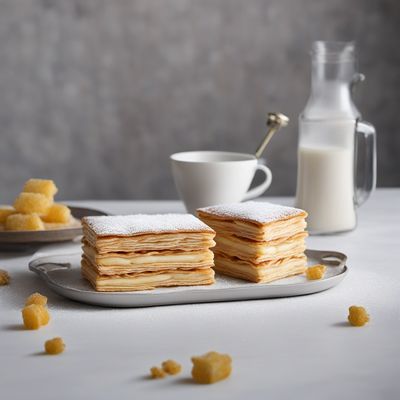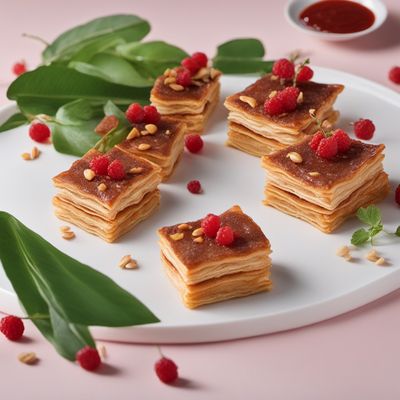
Dish
Mille-feuille
Mille-feuille is made by layering puff pastry with pastry cream and then topping it with a layer of icing or powdered sugar. The pastry cream can be flavored with vanilla, chocolate, or other flavors. The layers of puff pastry are crispy and flaky, while the pastry cream is smooth and creamy. Mille-feuille is a labor-intensive dessert that requires patience and skill to make, but the end result is well worth the effort.
Origins and history
Mille-feuille originated in France in the 19th century and was originally called "Napoleon". It is named after Napoleon Bonaparte, who was known for his love of pastry. Mille-feuille quickly became popular in France and is now enjoyed all over the world.
Dietary considerations
Mille-feuille is not suitable for people with gluten or dairy allergies. It is also high in calories and should be consumed in moderation.
Variations
There are many variations of mille-feuille, including ones that use different types of pastry cream or fruit. Some versions also include a layer of jam or caramel between the layers of puff pastry.
Presentation and garnishing
Mille-feuille should be presented on a white plate and garnished with fresh fruit or a dusting of powdered sugar. The layers should be clearly visible and the pastry should be cut cleanly with a sharp knife.
Tips & Tricks
To make the pastry cream, be sure to whisk the egg yolks and sugar until they are pale and thick. This will ensure that the pastry cream is smooth and creamy. Also, be sure to chill the pastry cream before using it to assemble the mille-feuille.
Side-dishes
Mille-feuille can be served with fresh fruit or a fruit coulis. It is also delicious with a scoop of vanilla ice cream or whipped cream.
Drink pairings
Mille-feuille pairs well with a sweet dessert wine, such as Sauternes or Muscat.
Delicious Mille-feuille recipes
More dishes from this category... Browse all »

Anpan
Japanese cuisine

Antakya künefesi
Turkish cuisine

Apfelstrudel
Austrian cuisine

Appelflap
Dutch cuisine

Apple Cider Doughnut
American cuisine

Asabi
Lebanese cuisine

Asawer
Lebanese cuisine

Athirasa
Sri Lankan cuisine






